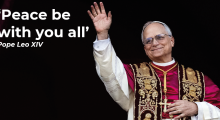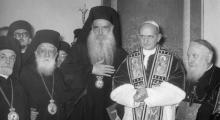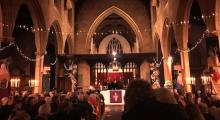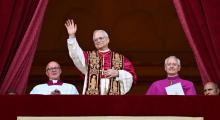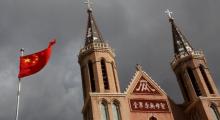Issued by the Catholic Center for Studies and Media - Jordan. Editor-in-chief Fr. Rif'at Bader - موقع أبونا abouna.org
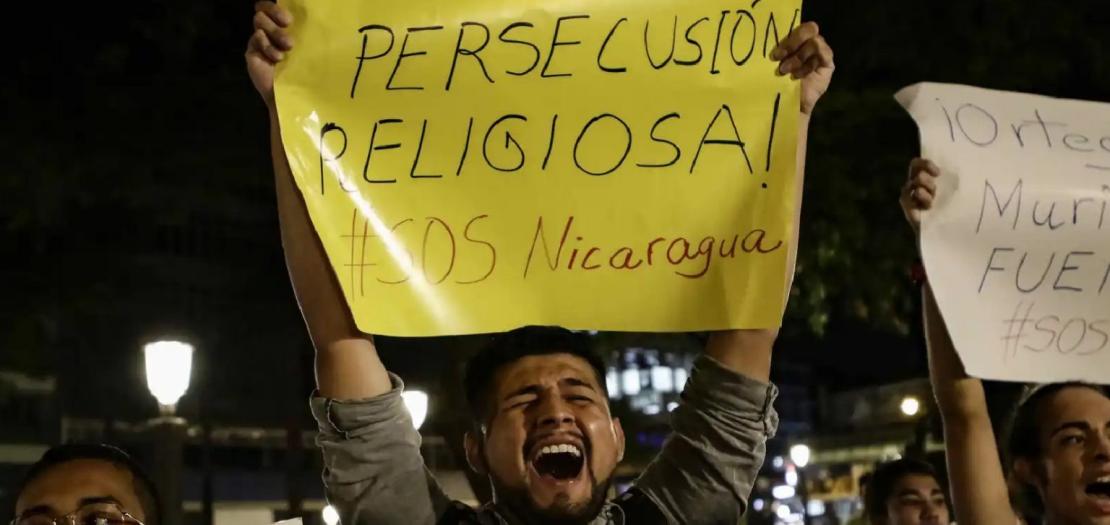
The Nicaraguan Government’s persecution of the Catholic Church remains as severe as ever
The right to receive spiritual care in times of illness and death is considered by many a fundamental one, and the government’s recent prohibitions have sparked concern worldwide over the trajectory of religious rights under the Ortega administration.
In an unprecedented restriction on religious freedom, Nicaraguan authorities, under the directive of President Daniel Ortega and Vice President Rosario Murillo, have reportedly banned Catholic priests from entering hospitals to perform the sacrament of Anointing of the Sick. The sacrament, a deeply significant rite for the faithful facing critical illness or near the end of life, is now largely inaccessible in the country’s public hospitals, according to attorney and author Martha Patricia Molina.
Molina, who authored the report “Nicaragua: A Persecuted Church?”, described the situation to LA PRENSA as a direct assault on the Church and its ability to minister to its followers. “It’s customary for us as Catholics to call upon priests for the anointing when facing critical health issues, for spiritual peace,” she stated. “However, priests are now being turned away at hospitals, where they’re told they are barred from entry.” This prohibition, Molina added, extends to all regions of the country, effectively leaving many Catholic Nicaraguans unable to receive this essential sacrament at a critical moment in their lives.
The Anointing of the Sick, once known as “Extreme Unction,” is administered to provide spiritual strength and grace during severe illness or old age. It involves the anointing of the sick individual’s forehead and hands, accompanied by prayers led by a priest. Reserved for those facing significant health challenges, this sacrament offers peace and readiness for the “transition to the Father’s house,” as described in the Catholic Catechism. With this new policy, numerous Nicaraguan Catholics may now be denied this sacrament in their final moments, an issue Molina calls “devastating.”
Despite an outwardly calm public facade, the Nicaraguan government’s persecution of the Catholic Church remains as severe as ever, Molina emphasized. She pointed to constant surveillance, harassment, and intimidation of priests as evidence that hostility towards the Church has not waned. “Police continually monitor priests, asking questions and gathering detailed personal information, from phone numbers to family names,” she said. This vigilance, according to Molina, has led many priests to seek exile rather than face intimidation and, in some cases, the threat of imprisonment.
One priest from the Diocese of Siuna, managed by Bishop Isidoro del Carmen Mora Ortega, has recently joined the ranks of exiled clergy. After receiving threats and a summons to appear before the authorities, the priest made the difficult decision to leave Nicaragua, fearing detention and further persecution. Bishop Mora Ortega himself had previously been forcibly removed from the country, another victim of what many are calling a campaign of intimidation by the Ortega government.
With this latest case, a total of 67 clergy have now gone into exile to escape persecution, joining the 255 other religious figures forced to leave Nicaragua. Among those counted in Molina’s report are 98 nuns, along with bishops, priests, and seminarians. In addition, 34 have been prevented from returning to Nicaragua, and at least nine have been expelled outright.
The growing exodus of religious leaders and the Church’s diminishing ability to serve its congregation has left many Catholics in Nicaragua feeling vulnerable. “There may be a facade of calm, but the oppression persists,” Molina observed. The continued monitoring and restrictive measures imposed on the Church stand as a sobering reminder of the regime’s zero-tolerance approach toward dissenting voices, especially those within religious communities.
As Nicaragua’s faithful grapple with this ongoing repression, the international community is increasingly being urged to address and denounce these escalating infringements on religious freedom. The right to receive spiritual care in times of illness and death is considered by many a fundamental one, and the government’s recent prohibitions have sparked concern worldwide over the trajectory of religious rights under the Ortega administration.


